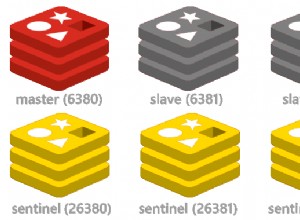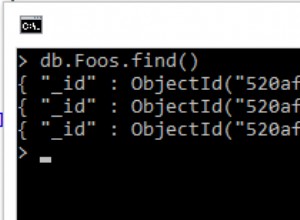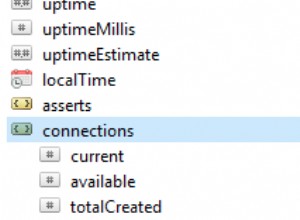Ponieważ Twoje pytanie jest obecnie niejasne, naprawdę mam nadzieję, że chcesz określić dwie Site klawisze i 2 Software klucze, ponieważ jest to ładna i prosta odpowiedź, którą możesz po prostu dodać do fazy $match, jak w:
{$match: {
group_id: "20ea74df4f7074b33b520000",
tracked_item_name: {$in: ['Twitter', 'Facebook', 'Word', 'Excel' ] }
}},
I wszyscy możemy kibicować i być szczęśliwym;)
Jeśli jednak twoje pytanie jest bardziej diaboliczne, takie jak uzyskanie 2 najlepszych Sites i Software wpisy z wyniku według czasu trwania, a następnie bardzo dziękujemy za pojawienie się tej obrzydliwości .
Ostrzeżenie:
Twój przebieg może się różnić w zależności od tego, co faktycznie chcesz zrobić, lub od tego, czy będzie to wysadzić w powietrze przez sam rozmiar twoich wyników. Ale to jest przykład tego, na co cię czeka:
db.collection.aggregate([
// Match items first to reduce the set
{$match: {group_id: "20ea74df4f7074b33b520000" }},
// Group on the types and "sum" of duration
{$group: {
_id: {
tracked_item_type: "$tracked_item_type",
tracked_item_name: "$tracked_item_name"
},
duration: {$sum: "$duration"}
}},
// Sort by type and duration descending
{$sort: { "_id.tracked_item_type": 1, duration: -1 }},
/* The fun part */
// Re-shape results to "sites" and "software" arrays
{$group: {
_id: null,
sites: {$push:
{$cond: [
{$eq: ["$_id.tracked_item_type", "Site" ]},
{ _id: "$_id", duration: "$duration" },
null
]}
},
software: {$push:
{$cond: [
{$eq: ["$_id.tracked_item_type", "Software" ]},
{ _id: "$_id", duration: "$duration" },
null
]}
}
}},
// Remove the null values for "software"
{$unwind: "$software"},
{$match: { software: {$ne: null} }},
{$group: {
_id: "$_id",
software: {$push: "$software"},
sites: {$first: "$sites"}
}},
// Remove the null values for "sites"
{$unwind: "$sites"},
{$match: { sites: {$ne: null} }},
{$group: {
_id: "$_id",
software: {$first: "$software"},
sites: {$push: "$sites"}
}},
// Project out software and limit to the *top* 2 results
{$unwind: "$software"},
{$project: {
_id: 0,
_id: { _id: "$software._id", duration: "$software.duration" },
sites: "$sites"
}},
{$limit : 2},
// Project sites, grouping multiple software per key, requires a sort
// then limit the *top* 2 results
{$unwind: "$sites"},
{$group: {
_id: { _id: "$sites._id", duration: "$sites.duration" },
software: {$push: "$_id" }
}},
{$sort: { "_id.duration": -1 }},
{$limit: 2}
])
Wynikiem tego jest *niezupełnie czysty zestaw wyników, który byłby idealny, ale jest to coś, z czym można pracować programowo i jest to lepsze niż filtrowanie poprzednich wyników w pętli. (Moje dane z testów)
{
"result" : [
{
"_id" : {
"_id" : {
"tracked_item_type" : "Site",
"tracked_item_name" : "Digital Blasphemy"
},
"duration" : 8000
},
"software" : [
{
"_id" : {
"tracked_item_type" : "Software",
"tracked_item_name" : "Word"
},
"duration" : 9540
},
{
"_id" : {
"tracked_item_type" : "Software",
"tracked_item_name" : "Notepad"
},
"duration" : 4000
}
]
},
{
"_id" : {
"_id" : {
"tracked_item_type" : "Site",
"tracked_item_name" : "Facebook"
},
"duration" : 7920
},
"software" : [
{
"_id" : {
"tracked_item_type" : "Software",
"tracked_item_name" : "Word"
},
"duration" : 9540
},
{
"_id" : {
"tracked_item_type" : "Software",
"tracked_item_name" : "Notepad"
},
"duration" : 4000
}
]
}
],
"ok" : 1
}
Widzisz, że otrzymujesz 2 najlepsze Sites w tablicy, z górnymi dwoma Software elementy osadzone w każdym. Sama agregacja nie może już tego wyjaśnić, ponieważ musielibyśmy ponownie połączyć elementy, które podzieliliśmy, aby to zrobić, a jak dotąd nie ma operatora, którego moglibyśmy użyć do wykonania tej czynności.
Ale to było zabawne. To nie wszystko sposób, ale większość drogi, a zrobienie z tego odpowiedzi na 4 dokumenty byłoby stosunkowo trywialnym kodem. Ale już mnie boli głowa.




